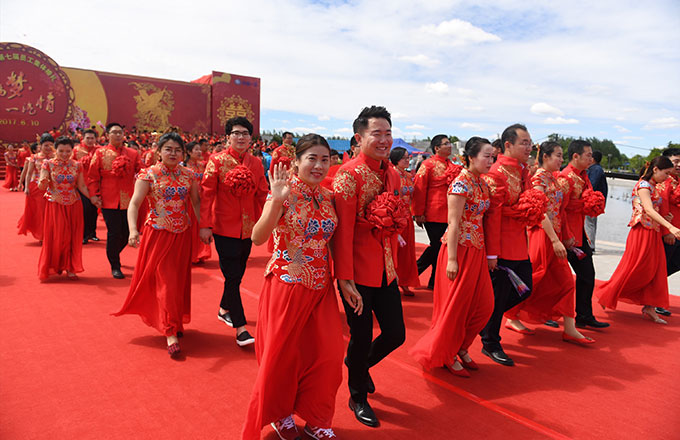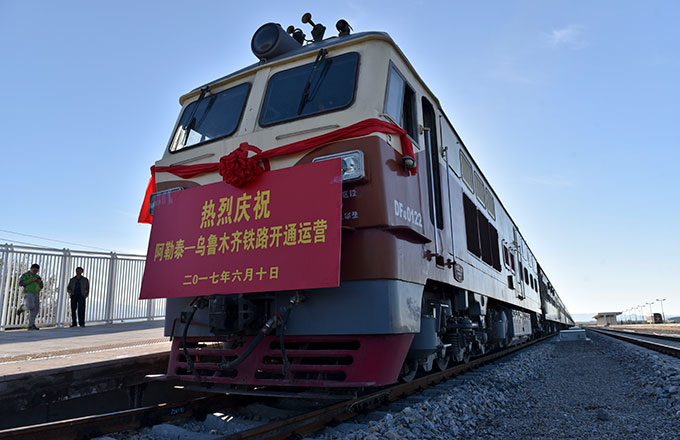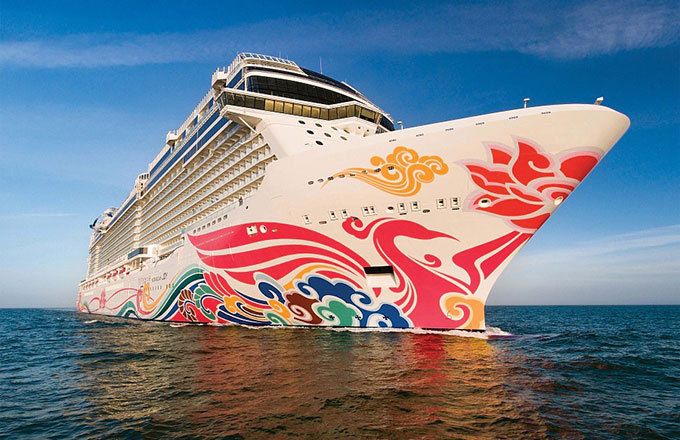We shall draw on historical experience and guard against wrong tendencies
April 30, 1987
The overall situation in China is good. Since the downfall of the Gang of Four and the convocation of the Third Plenary Session of the Party's Eleventh Central Committee in 1978, we have formulated a series of new principles and policies that have proved sound in practice. But this is only a beginning. Our goal for the first step is to reach, by 1990, a per capita GNP of US$500, that is, double the 1980 figure of $250. The goal for the second step is, by the turn of the century, to reach a per capita GNP of $1,000. When we reach that goal, China will have shaken off poverty and achieved comparative prosperity. When the total GNP exceeds $1 trillion, the national strength will increase considerably, although per capita GNP will still be very low. The goal we have set for the third step is the most important one: quadrupling the $1 trillion figure of the year 2000 within another 30 to 50 years. That will mean a per capita GNP of roughly $4,000 -- in other words, a medium standard of living. That target may not seem high, but it is a very ambitious goal for us, and it won't be easy to achieve.
We are now confident that we can attain our first goal ahead of schedule, this year or next. That doesn't mean it will be easy to reach the second goal, but I think we can do it. Our third goal will be much harder to reach than the first two. Our experience over the last eight years or so shows that the road we have taken is the right one. But it is only after the third step that we shall really be able to show the superiority of socialism over capitalism -- that's something we can't prove at the moment. We shall have to work hard for another 50 or 60 years. By then, people of my age will be gone, but I have no doubt that the younger generations will reach the third goal.
The image of China has really changed since the founding of the People's Republic. For more than a century after the Opium War China was subjected to humiliation, and the Chinese people were looked down upon. After 28 years of hard struggle under the leadership of the Communist Party, the people defeated the imperialist aggressors and overthrew the regime of Chiang Kai-shek. In 1949, when the People's Republic of China was founded, the Chinese people finally stood up. It is true that in the 38 years since then we have made a lot of mistakes. Our basic goal -- to build socialism -- is correct, but we are still trying to figure out what socialism is and how to build it. The primary task for socialism is to develop the productive forces. Our seizure of state power in 1949 liberated those forces as a whole, and the agrarian reform liberated the productive forces of the peasants, who constitute 80 per cent of China's population. So far so good. But we did a poor job of expanding the productive forces. That was chiefly because we were in too much of a hurry and adopted ``Left'' policies that hindered their development instead of accelerating it. We began making ``Left'' mistakes in the political domain in 1957; in the economic domain those mistakes led to the Great Leap Forward of 1958, which resulted in enormous damage to production and much hardship for the people. From 1959 through 1961 we experienced tremendous difficulties -- people didn't have enough to eat, not to mention anything else. In 1962 things began to look up, and production was gradually restored to its former level. But the ``Left'' thinking persisted.
Then in 1966 came the ``cultural revolution'', which lasted a whole decade, a real disaster for China. During that period many veteran cadres suffered persecution, including me. I was labelled the ``No. 2 Capitalist Roader'' after Liu Shaoqi. Liu was called ``commander-in-chief of the bourgeois headquarters'' and I ``deputy commander-in-chief''. Many strange things happened in those days. For instance, people were told that they should be content with poverty and backwardness and that it was better to be poor under socialism and communism than to be rich under capitalism. That was the sort of rubbish peddled by the Gang of Four. There is no such thing as socialism and communism with poverty. The ideal of Marxists is to realize communism. According to Marx, communist society is a society in which the principle of from each according to his ability, to each according to his needs is applied. What is the principle of to each according to his needs? How can we apply this principle without highly developed productive forces and vast material wealth? According to Marxism, communist society is a society in which there is overwhelming material abundance. Socialism is the first stage of communism; it means expanding the productive forces, and it represents a long historical period. Only if we constantly expand the productive forces can we finally achieve communism. The Gang of Four's absurd theory of socialism and communism led only to poverty and stagnation.
In the first couple of years after we had smashed the Gang of Four not all the ``Left'' mistakes that had been made were corrected. The years 1977 and 1978 were a period of hesitation in China. It was not until December 1978, when the Eleventh Central Committee convened its Third Plenary Session, that we began to make a serious analysis of our experience in the 30 years since the founding of new China. On the basis of that analysis we formulated a series of new policies, notably the policy of reform and the policy of opening up both internationally and domestically. We set forth a new basic line, which was to shift the focus of our work to economic development, clearing away all obstacles and devoting all our energies to the drive for socialist modernization. To achieve modernization and to implement the reform and the open policy we need political stability and unity at home and a peaceful international environment. With this in mind, we have established a foreign policy which in essence comes down to opposing hegemonism and preserving world peace.
In the last eight years our work has been successful, and the overall situation is good. That doesn't mean we haven't met with any obstacles. It's not so easy to rectify the ``Left'' thinking that has prevailed for several decades. ``Left'' thinking is our chief target because people have become used to it. There are not many in China who oppose reform. But in formulating and implementing specific policies, some people unintentionally reveal a yearning for the past. That's because old habits of thinking tend to reassert themselves. At the same time we have also encountered interference from the Right. Certain individuals, pretending to support the reform and the open policy, call for wholesale Westernization of China in an attempt to lead the country towards capitalism. These people don't really support our policies; they are only trying vainly to change the nature of our society. If China were totally Westernized and went capitalist, it would be absolutely impossible for us to modernize. The problem we have to solve is how to enable our one billion people to cast off poverty and become prosperous. If we adopted the capitalist system in China, probably a small number of people would be enriched, while the overwhelming majority would remain in a permanent state of poverty. If that happened, there would be a revolution in China. China's modernization can be achieved only through socialism, not capitalism. There have been people who have tried to introduce capitalism into China, and they have always failed.
Generally speaking, we have changed the image of China, although in our efforts to build socialism we have made mistakes. There has been interference both from the Right and from the ``Left'', the ``Left'' interference being the more dangerous. That's because people have become accustomed to ``Left'' thinking, and it's not easy to change their ideology. As for some of our young people, they should be on guard against Right thinking, especially because they are not clear about what capitalism is and what socialism is. So we have to educate them about these things.
In our efforts to modernize, to introduce reform and to open to the outside world, we may encounter dangers and difficulties. And we may make fresh mistakes, because China is such a big country and what we are doing is something that has never been done here before. Since China has its own characteristics, we can only run our affairs in accordance with the specific conditions in China. Of course, we can learn from the experience of others, but we must never copy everything. Since reform is a brand-new undertaking, mistakes are inevitable. We must not be afraid of making mistakes, and temporary setbacks must not make us abandon the reform and just mark time. We have to be daring, or we shall never be able to modernize. But we also have to be cautious about introducing particular reforms and review our experience regularly. Minor errors are inevitable, but we should try to avoid major ones.
(Excerpt from a talk with Alfonso Guerra, Deputy General Secretary of the Spanish Workers' Socialist Party and Vice-Premier of Spain.)
(From Selected Works of Deng Xiaoping, Volume III <1982-1992>)
- China issues guidelines to develop 'all-for-one' tourism demonstration zones
- Torrential rain triggers disaster in Southwest China
- Harvest time for wheat reapers in Shanxi
- Over 200 couples marry in Changchun group wedding
- Calligraphy tops other icons of Chinese culture, WeChat data shows



















